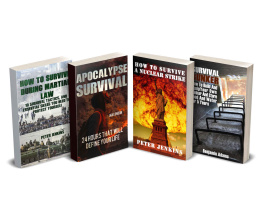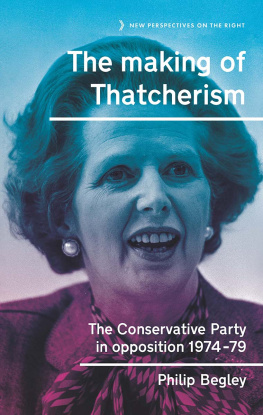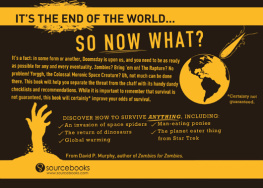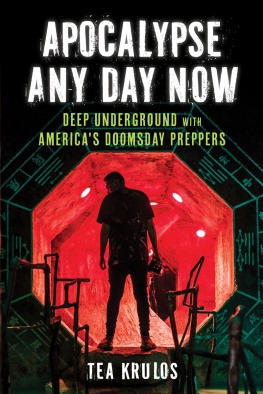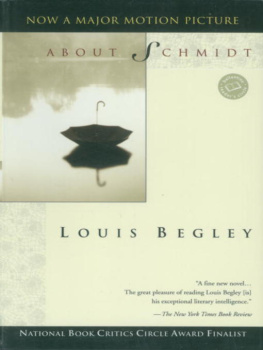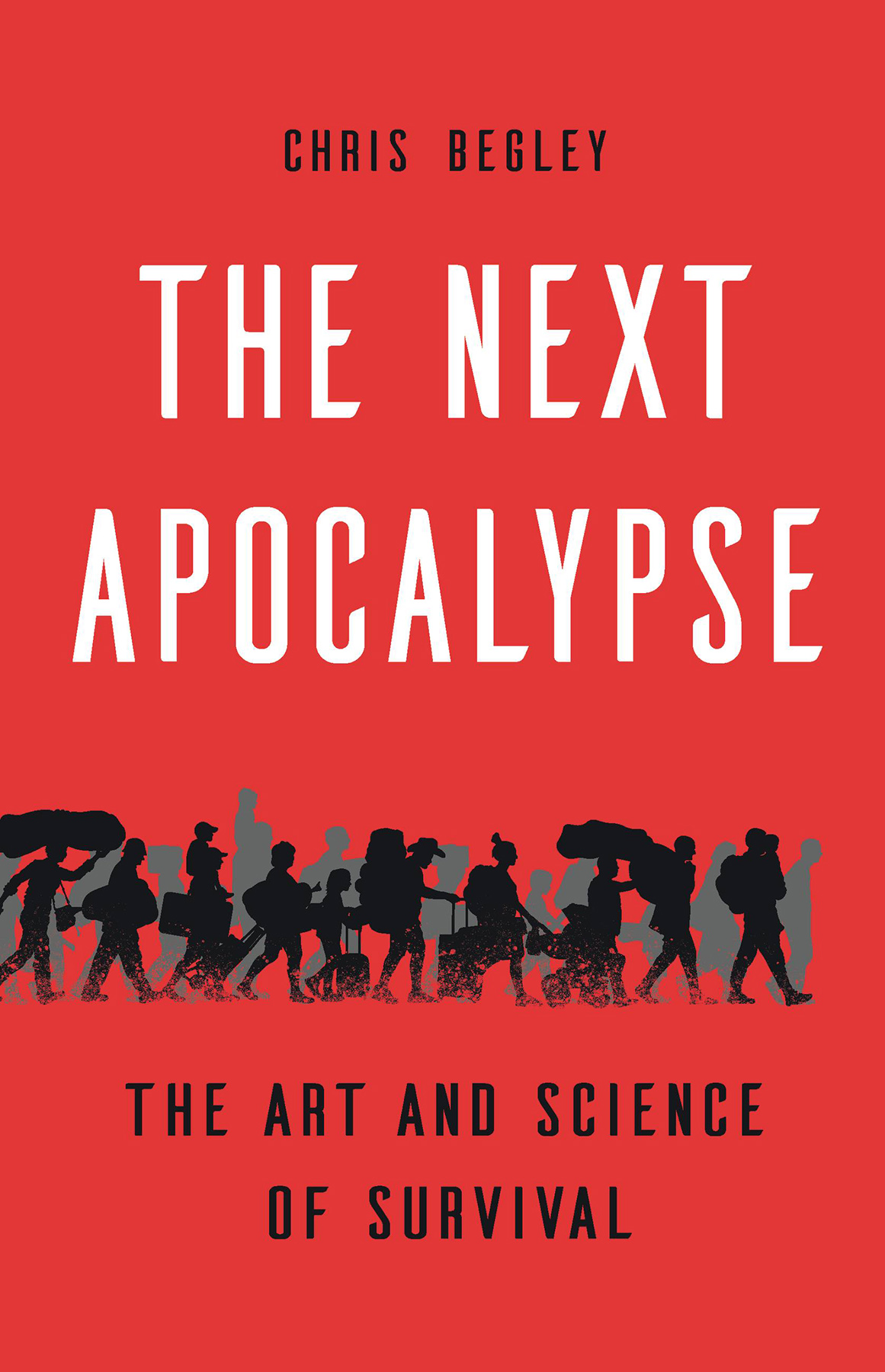
Copyright 2021 by Chris Begley
Cover design by Ann Kirchner
Cover image Seita / Shutterstock.com; Nosyrevy / Shutterstock.com; brushpiquetr / Shutterstock.com
Cover copyright 2021 by Hachette Book Group, Inc.
Hachette Book Group supports the right to free expression and the value of copyright. The purpose of copyright is to encourage writers and artists to produce the creative works that enrich our culture.
The scanning, uploading, and distribution of this book without permission is a theft of the authors intellectual property. If you would like permission to use material from the book (other than for review purposes), please contact permissions@hbgusa .com. Thank you for your support of the authors rights.
Basic Books
Hachette Book Group
1290 Avenue of the Americas, New York, NY 10104
www.basicbooks.com
First Edition: November 2021
Published by Basic Books, an imprint of Perseus Books, LLC, a subsidiary of Hachette Book Group, Inc. The Basic Books name and logo is a trademark of the Hachette Book Group.
The Hachette Speakers Bureau provides a wide range of authors for speaking events. To find out more, go to www.hachettespeakersbureau.com or call (866) 376-6591.
The publisher is not responsible for websites (or their content) that are not owned by the publisher.
Library of Congress Cataloging-in-Publication Data
Names: Begley, Chris, author.
Title: The next apocalypse : the art and science of survival / Chris Begley.
Description: First edition. | New York : Basic Books, Hachette Book Group, 2021. | Includes bibliographical references and index.
Identifiers: LCCN 2021016180 | ISBN 9781541675285 (hardcover) | ISBN 9781541675278 (ebook)
Subjects: LCSH: Survivalism. | DisastersSocial aspects. | Emergency managementSocial aspects.
Classification: LCC GF86 .B435 2021 | DDC 613.6/9dc23
LC record available at https://lccn.loc.gov/2021016180
ISBNs: 978-1-5416-7528-5 (hardcover), 978-1-5416-7527-8 (ebook)
E3-20211008-JV-NF-ORI
For Soreyda, Bella, William, and Aaron
N othing lasts forever. The laws of physics demand we descend toward disorder, and we comply. Every change sets in motion the next until the transformation permeates our lives and communities. These changes can be profound and dramaticsometimes apocalyptic. Many of us think about these apocalyptic changes, a lot. If it is not upon us, we convince ourselves that the next apocalypse is just around the corner. I suspect every generation feels the end is near. Sometimes they are correct.
The effects of profound changes endure, but we also remember the world before it transformed. We create a mythical past, a romanticized time when everything was in its proper order. I am an archaeologist, and I study how societies form and transform. In the rainforest in Honduras, I saw how profoundly these changes affect people, even centuries later.
Do you know the story of the Lost City? Don Cipriano asked me. Its right up there. He gestured with his hand.
Cipriano and I were sitting and looking into the campfire, waiting for water to boil for coffee. We were in the Mosquito Coast of Honduras, deep in the rainforest, where I had conducted archaeological research for years. We had been walking for over a week, documenting the archaeological sites that he would show me. I had heard the stories of the Lost City, of course. Everybody recounted the Lost City story, and many people claimed to have found it.
Should we go see it? I asked, skeptical but interested in the opportunity to look at another ancient site.
No, Cipriano answered. We cant. Its where all the gods fled when the Spanish came. Our gods, and from all the original people. Cipriano is Pech, an indigenous group descended from the people who built the archaeological sites a millennium ago. I worked with the Pech because they knew the rainforest better than anybody else did. I had been living in his village for a year or so. Cipriano continued, The gods are lonely, and you must talk to each one if you visit the city or they get angry and never let you leave. That means we would have to know all seven languages. We dont. Nobody knew all seven indigenous languages.
Have you been there? I asked. Cipriano looked at me, barely concealing his frustration and impatience.
No. Did you not understand the part about the languages? If I had ever been, I would still be there. But I know where it is. He paused, and his shoulders sank as the irritation, even his energy it seemed, disappeared. His voice trailed off.
Maybe we can go someday, he said. I dont know
The sudden resignation surprised me. He wanted to go, it was clear, but he knew he could not. Going there would be like traveling back to an idealized time. He could never go back.
We never spoke of it again, and I never visited that place, but I understand why it was so important to him. This lost-city legend, the legend of the White City, is centuries old. Spanish versions have been conflated with the Pech stories. Today, the stories describe a large, once-wealthy city lost in the jungle. In the original Pech stories, it is not a city. They use the term Kao Kamasa , or White House. Unfamiliar with the Pech language, the name was mistranslated by outsiders. No hint of scale or wealth appears in the original story, because it is not important. The important part is that this place is home to the gods and located in the traditional homeland of the Pech.
There are many impressive archaeological sites in the area, but this one represents his peoples ancestral home. This is where they were before their traditional world collapsed and they were scattered by the interloping Europeans. This represents society before it fell apart. From Ciprianos reluctance to visit the place, and his desire to talk about it, I realized that what was important was not the place but what was lost: the autonomy and the dignity that could never be found in the rainforest. It was not about the place: it was about a mythical, half-remembered, half-imagined, pre-collapse past.
For Cipriano, this distant event is not just about the past. His image of a mythical past formed the framework around which he constructs his present. For him, the present is a distorted and grotesque version of what might have beenwhat would have beenhad it not been hijacked by interlopers. If this image of a distant, pre-collapse past has that power, what about our visions of a post-collapse future?
How we think about the future is important; it shapes that future. As Ciprianos vision of the past affects his view of the present, how we think about the future leads us to act in certain ways now, and in turn, those actions affect the future. When I look around now, I see us imagining an apocalyptic future. We write about it, make films about it, and prepare for it. We think about things falling apart. We create elaborate apocalyptic fantasies, which are both painful and pleasurable to indulge. Those fantasies inform our preparation for disaster and set the parameters of possible futures.
Why do we do this? Maybe we are worried about the future, understandably. We face enormous challenges, with more on the horizon. It seems to be more than that, however. We seem to enjoy the fantasizing. Our fantasies reflect our history, desires, and fears. These fantasies shape the stories we create. Those stories influence our future.
Like most archaeologists, I study societies that are constantly transforming, including some catastrophic transformations we label collapses. Archaeologists study how and why these changes occur, and how people react to rapid or profound change. This topic is familiar to most archaeologists and, for some, central to their research. I look at what actually happens when things fall apart, and I see where our imagination gets it wrong. Our fantasies are not consistent with how any of this has ever played out, in any situation. Apocalyptic narratives in books and movies look nothing like real catastrophes. We have an entertaining and convenient but inaccurate view of how these things happen. We are preparing for the wrong disaster.


